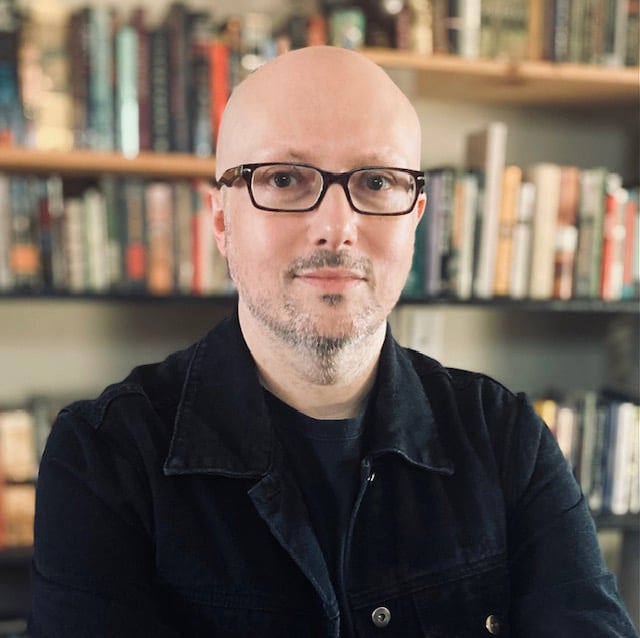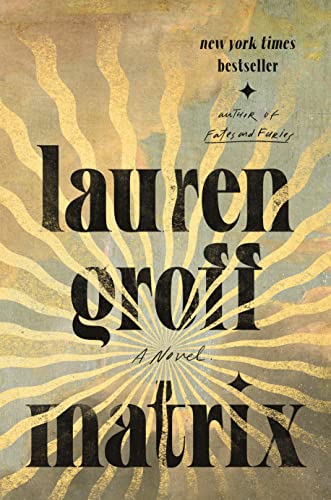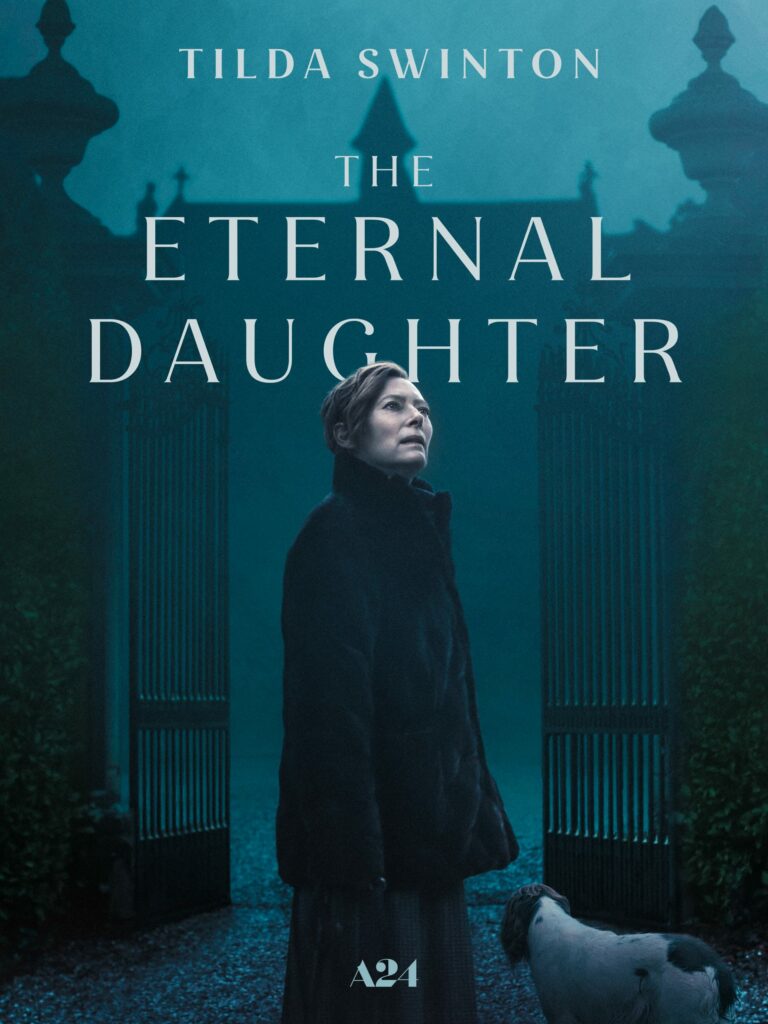We’re thrilled to introduce the 2023 Oregon Literary Fellowship recipients with individual features on our blog! Out-of-state judges spent several months evaluating the 500+ applications we received, and selected 13 writers and two publishers to receive grants of $3,500 each. Literary Arts also awarded two Oregon Literary Career Fellowships of $10,000 each. Applications for the 2024 Literary Fellowships will open in June 2023.

Dustin Hendrick is an author and screenwriter. His autobiographical essay collection, The Endless M, was released in 2020. By day he is a script supervisor and by night is at work on a novel. In summer 2023 Dustin will co-direct a film adaptation of his short story, Out of View, with his husband Nathan, a filmmaker. Dustin in the recipient of the Laurell Swails and Donald Monroe Memorial Fellowship in Fiction.
Q&A with Literary Arts
Who are some writers you look up to or who move you to write?
It would be quite the list if I wrote them all out. Joan Didion and Ursula K. Le Guin immediately spring to mind. And James Baldwin. And Virginia Woolf.
Lauren Groff, Colson Whitehead, Dorthe Nors, Ian McEwan, Yoko Ogawa, Anne Rice, Donna Tartt, Octavia E. Butler, Douglas Stuart, Kazuo Ishiguro, Karen Russell, Lucia Berlin, Jo Ann Beard, Jason Arias, Zadie Smith, Wesley Stace. I could go on.
I recently made my way through Randall Kenan’s published works, which are lingering in my mind in the best way. His descriptions of a childhood in rural South Carolina and stories set in his fictional town, Tims Creek, resonate deeply. He left too soon, and I’ll always long for more.
I’d also like to mention two short story collections from fellow OLF recipients (fellow fellows?): People Like You by Margaret Malone and What We Pick Up by Stacy Brewster, both of which are beautifully written and continuously inspiring.


What are your sources of inspiration? Of joy?
I often find inspiration in research, in obscure corners of history and unlikely, sometimes mundane details that spark the desire to know more, which often sparks a character or the beginnings of story. I’m reading an incredible book called The Star Machine by Jeanine Basinger about the lives and careers of actors and others working in the so-called “Golden Age’ of American cinema in the 1930s and ‘40s, which is equal parts fascinating and horrifying (like pretty much all of recorded history, right?)
Music is a big source of inspiration for me. Right now, it’s a combination of Lana Del Rey, Frank Ocean, Fever Ray, Songs: Ohia, and Other Lives, and I just realized what an odd list that is as I wrote it. This is kind of the unofficial soundtrack to the novel I’m working on, though I have to turn the music off when I’m doing the actual writing.
Joy for me is simple things. Lazy days at home with my husband are what I love most. We enjoy cooking together, and especially writing together. That’s us at our best as a couple. He’s worked for many years in film and television, so writing for screen with him is a learning experience for me, as well as great fun.
Also, I find both inspiration and joy in watching my cat, Alice, do just about anything.
How would you describe your creative process?
Tragically slow, which is kind of funny given how impatient I am. I want to be that writer who just closes the office door and disappears for a month and emerges with battle scars and a completed manuscript, but my process is much slower. On an ideal day I write for between one and three hours, about five days a week. Occasionally I’ll have a burst of productivity and spend all day at it, but if I can manage that basic routine I can continue feeling good about things.
I tend to think about stories and characters for a long time – sometimes several years – before I ever write a word, with the goal of knowing the characters well enough so that I don’t have to stop in the midst of writing to determine what they’d say or how they might react. I don’t always write a proper outline, but having a solid mental grasp of the “overall” of a story helps me to stay on track. The good news is that I always have several ideas in various stages of development, so I’m never not writing.
I’ve found in recent years that I’m one of the many who prefer to write early in the day. Get up, pet the cat, make coffee, get a bit of exercise in (usually in my guest bedroom/office, so I can go right to the desk) and then sit down to write. Some days I wake up and know exactly what I want to write and other days I have to force it, but the one thing I’ve finally become consistent at is showing up to the desk determined to write something, be it a page, a paragraph, or sometimes just edits of whatever I wrote the day before.
What is most exciting about receiving a fellowship?
It’s such an absolute thrill and an honor, especially given the caliber of the writers who’ve received it before me.
I started on this path a bit late. I only started taking my writing seriously in my late thirties, and I struggle sometimes with feeling like I’m too late, too old, etc., none of which is true, but there it is, my brain doing its best to undermine me. The money is great (extra money is extra writing time) and the ego boost is legitimate, but the best part for me is that I have a publicly verifiable reason to disregard that voice of self-doubt and just get to work.
It came at a good time. I’m in the thick of novel writing, in that slightly terrifying place where I don’t exactly know what I’m doing. Staying motivated day to day and showing up to the keyboard consistently can be daunting when the writing is hard, but an esteemed writer enjoyed my work enough to give it the thumbs-up for an Oregon Literary Fellowship. That feels great! Now I really have no excuse but to keep going.
What are you currently working on?
A novel set primarily in the Golden Age of Hollywood I mentioned earlier, the main character being an actor in that time.
There’s a lot written about the era, but surprisingly little of it is first-hand accounts. The original idea has changed considerably since it first hit me (I’ve been playing around with this story for about two years) but the main character has remained the same since the beginning: a midwestern transplant living in California who is basically plucked out of his ordinary life due to his looks, reshaped and renamed by the industry and marketed as a leading man type, which he finds difficult for a variety of reasons. I’m trying to give the story a “stranger in a strange land” feel where this guy’s identity and understanding of himself becomes more and more convoluted the more famous he gets. My husband and I have also recently begun pre-production for our short film, Out of View, which we adapted from my short story of the same name. It turns out filmmaking is an insane amount of work, but I’m so excited to get it made.
What has kept you writing?
My husband, my friends and family, my therapist. The characters living in my head whose stories can only be told by me. The need to be heard and understood on some level. Maybe I’m still defying that creative writing instructor from college who told me I wasn’t a real writer.
Once I started taking my writing seriously and giving myself permission to write, this mass of ideas started blooming up in my mind. I have so many – stories and situations and characters I want to explore. It would be such a shame to give it up now.
I’ve also noticed something in myself lately, something ruthless that won’t allow me to quit. It’s so easy to feel frustrated or discouraged in the arts. It’s always hard work – no one is owed anything. Rejection is such a big part of the game, and some of them really knock me down, but there’s also this obstinate part of me that just shrugs it off and keeps writing.
What advice do you have for future applicants?
Aside from the standard advice, which is to just keep applying every year, the only thing I can offer is to apply with work you are deeply passionate about, the story you had to write, the one that won’t leave you alone. This is the kind of writing I used in my sample – two short stories that I kind of had no choice but to write.
This is the fourth year I’ve applied. I really only kept applying because it felt like a wasted opportunity to not, even though I had zero expectations. But it costs nothing but a bit of time, ultimately, and regardless of the outcome that’s time spent writing, which is time spent honing one’s craft.



Any book (or movie, album, show, etc.) recommendations?
- Books:
The Boys of My Youth by Jo Ann Beard. The gold standard of creative nonfiction essay. I go back to it over and over. Her essay Coyotes is one of the best things I’ve ever read.
If I Had Two Wings by Randall Kenan. Such powerful writing. His sentences and stories haunt me.
Matrix by Lauren Groff. So wonderfully strange and wise and immersive. If anything has ever made me want to be a medieval nun, it’s this book.
Misfortune by Wesley Stace. One of my favorite novels. It reads like an updated Victorian classic. At once humorous, heartbreaking, unconventional, horrific in places, and simply unlike any novel I’ve read before or since.
Giovanni’s Room by James Baldwin. A classic that I return to frequently. I keep a copy on my desk to pick up when I’m struggling to write. Reading a few pages of it usually jumpstarts my mind.
- Albums:
Silent Shout by The Knife. Or anything by The Knife or their related act, Fever Ray.
Blonde by Frank Ocean. Listening to the entire album is akin to reading a really good novel in one sitting.
- Show:
HBO’s Hacks. Excellent comedic writing.Jean Smart and company are hilarious and broken and so relatable. Eagerly awaiting the next season.
- Films:
Joanna Hogg’s The Eternal Daughter. I just watched it a few days ago and completely loved it. Tilda Swinton is one of my favorite actors, and she is perfection in this film.
Jonas Matzow Gulbrandsen’s Valley of Shadows. A beautifully eerie and wildly underrated Norwegian film about nightmares, folk monsters, and grief.
Excerpt from Dustin Hendrick’s untitled novel-in-progress:
Darby has survived in California on a combination of looks and charms and a willingness to take any job he can get. He’s been a carpenter’s assistant, a valet for a club whose members wore feathered masks, whose faces he never once saw, and most memorably the night watchman in a cemetery for the wealthy and famous on the edge of the city, the air smelling of nearby ocean, the houses on the ridge a colony of gleaming red-roofed castles.
He’s walking home from the cemetery, rising sun at his back, when he’s approached by a man whose face he can’t recall.
Hey handsome, the man says, and Darby is suspicious. He’s heard of men in this town who want things they only reveal after the deal is struck, sometimes unspeakable things, the door closed and locked from the outside.
Been looking for you, he says, and hands Darby a card. Tomorrow. The man looks Darby up and down again in a way that most men hide, and walks away. On the card is an address, a telephone number, and the name of a casting office in Burbank.
He arrives as early as the bus can get him there. Inside, three suited men smoking at a table. The woman at the desk shuts the door behind him, and Darby if afraid.
Read this, if you will, one of the men says and hands Darby a piece of paper. Six tense lines typed in a strange format. He reads it. Again, more aggressive this time, they ask, more in-charge, and he does. They thank him and send him away.
His first role is small, but pivotal. The first death is his, the moment when the plot shifts from mystery to menace. The director praises him, and he signs a contract with a studio in Hollywood. He quits his cemetery job without proper notice. The owner hands him the parting check angrily, and Darby never admits, not even to himself, how much he misses those nights among the graves of the stars.
Judge’s Comments
“This writing is so lucid– somehow mysterious and straightforward both. The child’s fragile and sturdy existence is mesmerizingly captured and the intensity of adult errors swirl around him like natural, unavoidable storms. The reader comes to love his quiet resilience and his wonderment at the big, broken world.”


